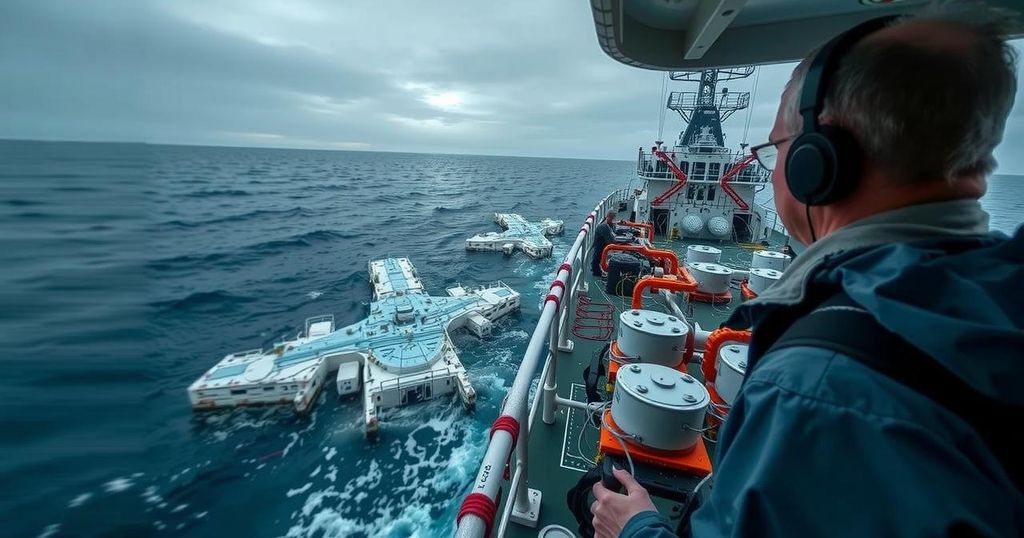Durham Scientist Participates in Research on 2011 Tohoku Earthquake
A Durham scientist is part of an international team investigating the 2011 Tohoku earthquake by drilling the seabed off Japan’s east coast. This research aims to understand the causes of this significant seismic event, which resulted in massive destruction and loss of life. The team is currently sampling sediments and studying fault properties to enhance earthquake prediction and preparedness.
An international research team, which includes a scientist from Durham University, is currently engaged in deep-sea drilling off the eastern coast of Japan. Their objective is to investigate the underlying causes of the 2011 Tohoku earthquake, recognized as one of the most catastrophic seismic events in modern history. This earthquake not only triggered a tsunami that devastated coastal areas but also resulted in significant damage to infrastructure, including a critical nuclear power plant incident at Fukushima Daiichi.
The 2011 Tohoku earthquake, recorded as one of the largest in history, claimed approximately 18,500 lives while displacing over 160,000 individuals. It was accompanied by a tsunami that reached up to six miles inland. In the aftermath, the Japan Trench Fast Drilling Project (JFAST) was initiated in 2013 to extract samples from the Japan Trench plate, paving the way for further investigations.
Currently, during the Tracking Tsunamigenic Slip Across the Japan Trench (JTRACK) project, researchers, including Durham Earth Sciences expert Rebecca Robertson, are aboard the Chikyu drilling vessel. Having progressed significantly in their four-month expedition, the team has drilled through the continental plate to reach the oceanic Pacific plate and established an observatory within the fault. They are now undertaking the analysis of deep-sea sediment and fault samples, which will include high-resolution imaging of the fault zone.
Prior to this event, seismic scientists understood that subduction zones, where one tectonic plate descends beneath another, could generate some of the most powerful earthquakes globally, but had believed that the shallow sections of these faults would not slip. Contrary to this understanding, the Tohoku earthquake exhibited unprecedented fault displacement that reached the ocean floor. The JTRACK study aims to deepen the scientific community’s understanding of the mechanisms that contributed to this unique seismic occurrence, with hopes of uncovering how such extraordinary earthquakes might develop in the future.
Rebecca Robertson represents one of just three scientists from the United Kingdom on a team comprising over 60 experts from Japan, the United States, and Europe.
The 2011 Tohoku earthquake is noted for its severity, resulting in substantial loss of life and displacement of communities, alongside catastrophic infrastructural damage, particularly at the Fukushima Daiichi nuclear power plant. The scientific community’s inquiry into its causes led to the establishment of various research projects aimed at furthering understanding of seismic phenomena, especially in subduction zones—areas typically associated with large earthquakes. This ongoing investigation seeks to address longstanding assumptions within seismology regarding fault behavior during seismic events.
The collaboration of international scientists on the JTRACK project represents a critical step towards elucidating the complexities of the 2011 Tohoku earthquake. Through advanced drilling techniques and sediment sampling, researchers hope to elucidate the mechanics of subduction zone earthquakes, potentially enhancing predictive capabilities and contributing to disaster preparedness in earthquake-prone areas. The insights garnered from this expedition may reshape existing knowledge and inform future scientific endeavors in seismology.
Original Source: www.durham.ac.uk




Post Comment